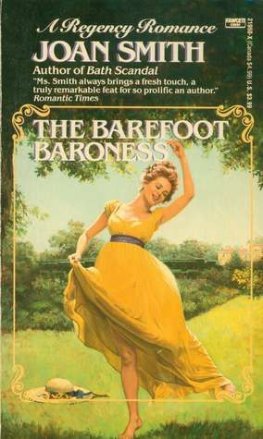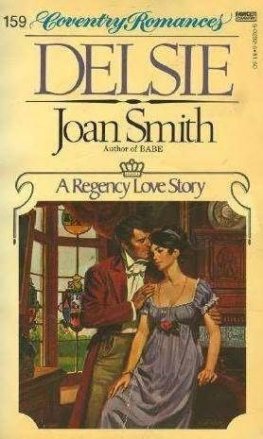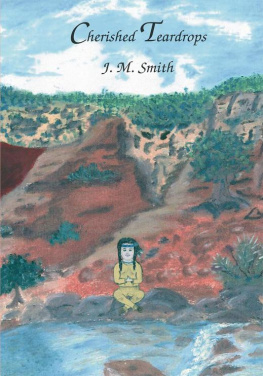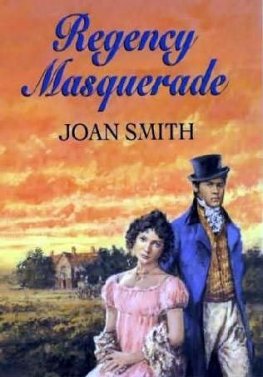
A MASCULINE ENDING
Joan Smith

Content
It was just before midnight when Lorettas train finally pulled into the Gare du Nord. It should have arrived two hours earlier, allowing time for an unhurried dinner before she set off in search of Andrews flat, but the French railway company had compounded the delay caused by the late running of the ferry by coming to an unexplained twenty-minute halt just outside Amiens. The night was hot and sticky, and the broken air-conditioning in Lorettas carriage had not improved the tempers of her fellow passengers, several of them small children whose patience had worn out long before their feet touched French soil. The whole journey, far from being the pleasurable outing she had hoped for, had been dogged by petty irritations from the moment she discovered that, contrary to the information given in the timetable, neither the English nor the French train betrayed any sign of the promised dining-car.
As she walked along the platform of the uncharacteristically quiet station, Loretta hoped she was not too late to find something to eat before setting off for the Left Bank. Andrews directions, although precise, had been accompanied by the warning that the flat was a little tricky to find, and she did not relish wandering the streets of an unfamiliar part of Paris on an empty stomach at getting on for one oclock on Saturday morning. She headed purposefully out of the station.
Accustomed to travelling alone, Loretta automatically adopted the precaution of walking with the air of someone who knows where she is going, a tried and tested method of discouraging unwanted attention from the sort of men who hang around stations. Across the road from the Gare du Nord, lights were blazing at a small brasserie, and she could see waiters deftly weaving in and out between tables; that restaurant, at least, was still bustling with life. She had last eaten there three or four years before, in the course of a weekend which combined business and pleasure; the business being a lecture she had given at a rather stuffy but prestigious institute, the pleasure an English politician with whom she had been conducting an intermittently satisfying affair. They had eaten at the little brasserie before taking the train back to England, she to her peaceful flat in north London, he to his elegant and unsuspecting wife in his Midlands constituency. The memory of previous visits to the city comforted her, investing its dark streets with an air of familiarity, and Loretta edged past the outdoor tables into the salon, surprised to feel her muscles relax as the door closed behind her. She realized she had been unusually tense since getting off the train, presumably due to the lateness of the hour.
Loretta caught the eye of the head waiter who, swiftly and without fuss, showed her to a table in the recesses of the restaurant. Grateful that she had been refreshing her French in preparation for the meeting she was due to attend next day, she told him that her train had been late and she was anxious to eat quickly. He summoned a more junior waiter, from whom she ordered steak and a salad, and a glass of red wine. When he returned with the drink, she opened her pink plastic briefcase and took out several sheets of A4 on which was typed the paper she was to present at nine oclock next morning a ridiculously early hour, Loretta thought, at which to start a meeting of academics from several countries, including the United States. She could not help but feel that her paper, a feminist discussion on the nature of authorship, would reach more receptive minds a little later in the morning when everyone had had a chance to recover from the travelling theyd done the day before. But the organizers of the symposium, the French members of an international journal of feminist literary criticism, Fem Sap - the wit of whose title was rarely reflected in its content - were untroubled by such heretical thoughts. The conference, on recent developments in feminist thought, would not finish until six and even then, as the majority of those attending slipped away for a congenial evening in Paris, Loretta would be expected to attend a meeting of the full editorial collective.
The meeting was ostensibly a routine affair, a discussion of papers to be commissioned and authors whose contributions should be sought, but Loretta was braced for one of those intemperate and robust arguments that occasionally disturbed the collectives deliberations. Schisms arose endlessly among the various alliances formed by European and American feminists, and on this occasion she anticipated a heated exchange on how to deal with the problem of masculine grammatical forms. A group of feminist literature teachers from universities in the United States, backed by a handful of French academics, had come up with a proposal that the editorial policy of Fem Sap should challenge the inherent sexism of French and Italian, two of the three languages in which the journal accepted contributions, by refusing to use masculine endings of any sort. Every verb ending and all nouns, they argued, should be treated as feminine. Loretta, who lectured in English literature at one of the colleges that made up London University, conceded that what they were complaining about was unfair: the way in which masculine past participles were used for groups that included men and women was a historical anomaly. Nevertheless, she feared the change would bring with it horrible confusion, and there was a whole corpus of literature which would either have to be relegated to the dustbin, or mangled out of recognition, if the proposal was accepted. She took comfort in the thought that the radical position was unlikely to carry the day, and also that the English language did not suffer from anything like the same problem.
Looking up from her paper for any sign that her meal was about to arrive - she had not eaten since breakfast in London that morning - Loretta became aware of the steady and appraising gaze of the man at the next table.
You are alone, Madame, as I am, he said in slightly accented English.
At once, part of her mind registered two observations: that her French, grammatically correct as it was, betrayed her English origins, and that he had addressed her as Madame rather than Mademoiselle, a courtesy to her age, she presumed, since her wedding ring had been discarded long ago. The analytical part of her brain noted these details, but her predominant reaction was one of irritation, accompanied by a return of the tension she had felt on her arrival at the station.
I am alone, Monsieur, because that is how it suits me to be, she said firmly. She had learned the hard way that a clear rejection, impolite as it might seem, was the only way to deal with unwelcome advances.
Pardon me, Madame, he persisted, inclining his head towards her in a gesture intended to be at once apologetic and winning. It is only that, in Paris, a woman as beautiful as yourself is rarely seen at this hour without a companion. I merely wished to extend to you the hospitality of my country by inviting you to join me.
Loretta regarded the speaker for a moment while she pondered her next move. He looked to be in his forties, but she guessed he was older. His dark hair was slightly touched with grey, his suit well if flashily cut - probably Italian, she thought. He had the air of a man used to giving orders, a company director perhaps, and she recognized that he would not be easily deterred. Her heart sank; she was tired, and depressed by the vicissitudes of her journey from London. She really could not face the fencing match which was bound to follow her civil reiteration that she was perfectly happy on her own.
Next page


















